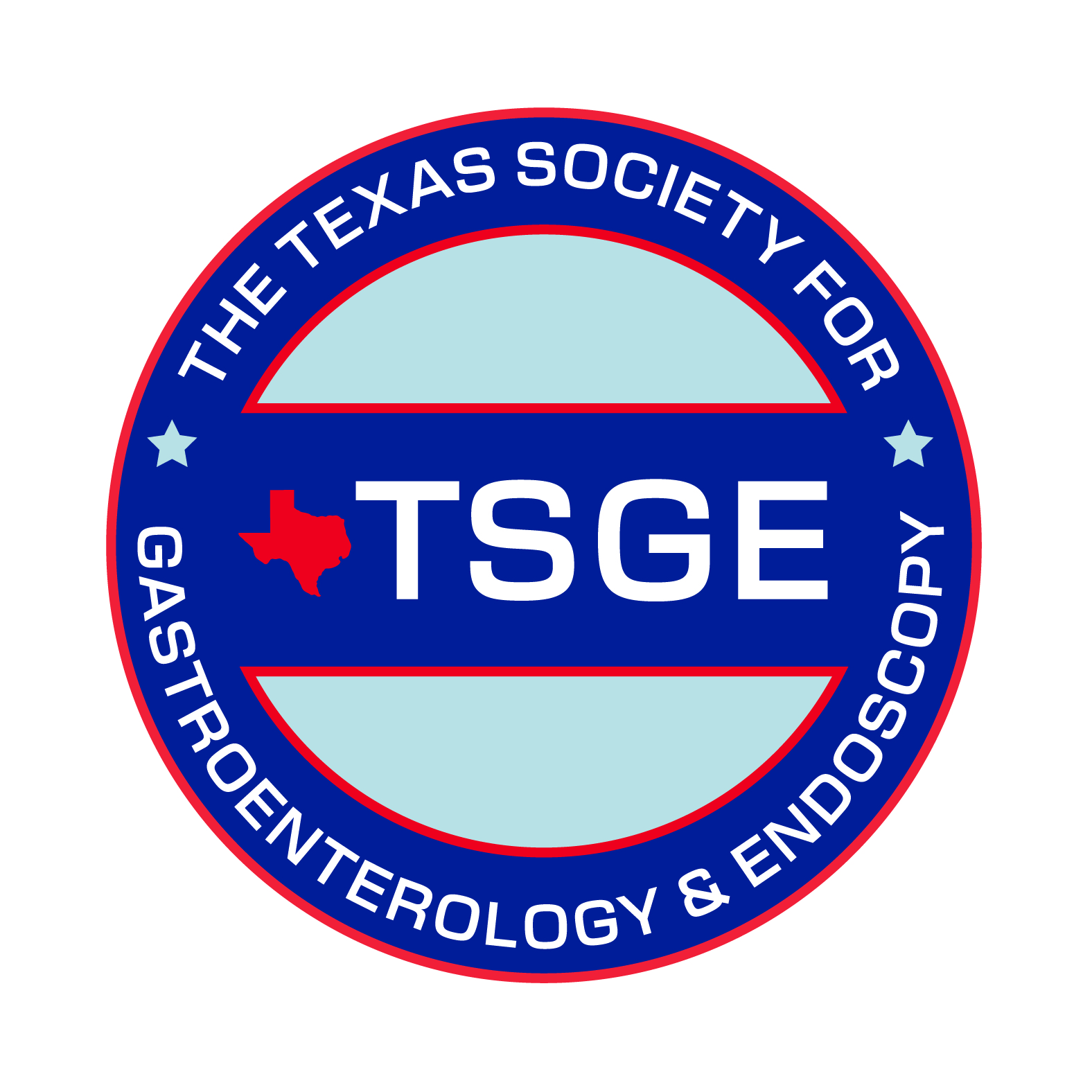|
Check Out Our Upcoming Events & Updates ↓
TSGE Legislative Update - June 2025Final Report on the 89th Texas LegislatureThe 89th Texas Legislature featured several critical debates on health policy that have a wide-ranging impact on the practice of medicine, patient care, and collaboration within the broader healthcare system. This session brought new funding for colorectal cancer treatment, fights over scope-of-practice expansion, and efforts by the health insurance lobby to roll back hard-won patient protections like network adequacy and prior authorization reform. While not exhaustive, this report outlines several of the most significant issues that the Texas Society for Gastroenterology and Endoscopy engaged in during the session and highlights our ongoing efforts to advocacy for the practice of gastroenterology while supporting sound public policy that services the best interest of patients.As one of its founding principles, the Texas Society for Gastroenterology and Endoscopy has long worked to raise awareness about the risk of colorectal cancer and emphasize the importance of colon health with lawmakers and members of the public.
One prominent outcome of these efforts is the Texas Colorectal Cancer Treatment Initiative, a state-funded program that provides dedicated funding to treat colorectal cancer for uninsured and underinsured Texans at up to 200% of the federal poverty level. With the general appropriations bill (SB 1) now passed and on its way to Governor Abbott's desk, I'm please to report that the Texas Society of Gastroenterology and Endoscopy was successful in securing an additional $10 million to fund the program through the 2026-2027 biennium.
We strongly advocated for this funding with members of the House Appropriations and Senate Finance Committees, and seeing it approved in both chambers' budgets is a testament to the impact of persistent advocacy. This investment also supports gastroenterologists and oncology providers by providing them with the resources to care for vulnerable populations.
This session, budget writers also directed the Health and Human Services Commission (HHSC) to evaluate the feasibility of using Section 1115 Demonstration Waiver (or a similar federal funding option) to fund early screening and treatment for colorectal cancer among uninsured or underinsured Texans. Securing a dependable source of federal funding would be transformative to the Texas Colorectal Cancer Treatment Initiative, offering improved budget certainty in future budget cycles and maximizing the state's investment through matching federal funds.
HHSC is required to present its recommendations and findings to the Legislative Budget Board and the Office of the Governor by September 1, 2026.
The state budget (SB 1) also significantly increased funding for Graduate Medical Education (GME) in Texas. The budget allocated a total of $304.4 million for GME expansion, which includes $282.4 million from General Revenue Funds ($71.3 million more than in the previous biennium) and $22.0 million from the Permanent Fund Supporting Graduate Medical Education.
These investments aim to maintain a 1.1-to-1 ratio of residency positions to medical school graduates in Texas, with the goal of retaining a greater number of the state's medical graduates to treat patients within the state. The Family Medicine Residency Program also received increased funding, raising per-resident support to $15,000 annually to enhance primary care training and encourage entry into family medicine, especially in underserved areas. These investments reflect Texas's commitment to expanding its healthcare workforce and providing essential training opportunities for medical graduates.
The "Make Texas Healthy Again" bill (SB 25), introduced by Sen. Lois Kolkhorst (R-Brenham) and Rep. Lacey Hull (R-Houston), represents a comprehensive effort to enhance public health through education, regulatory reform, and institutional accountability. The bill aims to address the increasing concerns surrounding chronic diseases linked to poor nutrition and sedentary lifestyles through a multifaceted approach, encompassing primary physical education, higher education curricula, food labeling, and the establishment of a state nutrition advisory body.
SB 25 requires students in pre-kindergarten through eighth grade to participate in at least 30 minutes of moderate to vigorous physical activity each day. This initiative highlights the state's dedicate to addressing childhood obesity and related health problems, including a host of serious gastrointestinal disorders.
In higher education, SB 25 stipulates that all health-related institutions develop nutrition curricula based on guidelines from the newly established Texas Nutrition Advisory Committee. Texas medical students and allied health professionals will be required to complete this curriculum, ensuring that future healthcare providers have a foundational understanding of the role nutrition plays in disease prevention and management. This increased focus on nutrition education means healthcare professionals will be better prepared to advice patients on dietary choices, potentially leading to earlier interventions and improved management of GI diseases.
Perhaps most significantly, SB 25 also introduces labeling requirements that require food manufacturers to include a warning label on products containing artificial colors, additives, or chemicals banned in other countries. These food labeling requirements aim to increase consumer awareness of these additives, reduce the consumption of ultra-processed foods, and promote healthier eating habits overall.
By promoting physical activity, enhancing nutrition education, and increasing transparency in food labeling, SB 25 lays the foundation for a healthier population and a potential reduction in the prevalence of gastrointestinal diseases. For TSGE, these measures not only align with preventive healthcare goals but also offer an opportunity to engage in border public health initiatives aimed at improving digestive health outcomes across Texas.
In what became one of the most challenging fights of the legislative session, Rep. Drew Darby (R-San Angelo) filed HB 3794, a sweeping scope of practice expansion bill that would grant nurse practitioners, nurse anesthetists, nurse midwives, and clinical nurse specialists full independent practice authority without the supervision or delegation of a licensed physician.
Under the provisions of the bill, APRNs would have full authority to evaluate patients, diagnose conditions, order tests, prescribe treatments (including controlled substances), and serve as a patient's primary care provider - all without physician involvement. The bill even redefines "nursing" to include medical diagnosis and prescribing, effectively authorizing APRNs to practice medicine without a license.
To state the obvious - HB 3794 represents a direct threat to Texas' physician-led care model and, more importantly, to patient safety. Gastroenterologists and other specialists recognize that complex medical conditioners require a team approach, and while nurses and advanced practitioners are vital members of this team, physician oversight is critical for complex decision-making, diagnosing nuanced conditions, and managing complications.
On April 14, HB 3794 was called before the House Committee on Public Health in a contentious hearing marked by hours of intense debate. TSGE joined a broad coalition of physician groups and medical societies in opposing HB 3794, asserting that patient access can be improved without compromising quality of care. The bill was initially left pending, and for a time, it seemed that our opposition might have successfully forestalled the bill entirely.
Two weeks later, Chairman Gary VanDeaver (R-Texarkana) announced the House Public Health Committee would hold a vote on HB 3794 the following day. The physician lobby team scrambled ahead of the vote in a pitched battle with the nursing lobbyists, hoping to solidify opposition to the bill and prevent the nurses from swaying any votes to their side. As we navigated the Capitol, counting and recounting votes, lobbyists on both sides seemed convinced that the votes were in their favor.
At the appointed time, Chairman VanDeaver called the House Public Health Committee to order in a packed meeting room behind the House chamber. After addressing several dozen unrelated bills, they reached HB 3794. At the moment of truth, Chairman VanDeaver seemed to acknowledge that the bill lacked sufficient support and chose to leave HB 3794 pending rather than risk a vote he felt was sure to fail.
That same day, on the other side of the Capitol rotunda, the Senate Committee on State Affairs was busy hearing its own version of the APRN scope expansion bill, SB 3055 by Sen. Mayes Middleton (R-Galveston). In a hearing that lasted from morning until night, dozens of physicians from across the state took their turn testifying in opposition to the unsupervised practice of nurses in Texas. They highlighted the potential harm to patient safety and outlined the substantial differences in educational and clinical experience between nurses and physicians. After many hours of testimony, the bill was also left pending without a vote.
In the end, our efforts to stop HB 3794 and SB 3055 were successful, as neither was ultimately called for a vote or advanced out of their respective committees. Our message to lawmakers remains clear: Texas should expand access by building on physician-led teams, not dismantling them. We support measures to provide care to rural and underserved areas, but handing unsupervised medical practice to nonphysicians is no a responsible solution.
This session, House Insurance Committee Chairman Jay Dean (R-Longview) filed HB 138 to establish the Health Impact, Cost, and Coverage Analysis Program (HICCAP) at the UT Health Science Center in Houston to evaluate new insurance benefit mandates proposed by the Texas Legislature. Before voting on legislation that would mandate additional coverage benefits in state law, the members of the legislature would receive an HICCAP report estimating costs, coverage impacts, and utilization.
In response to concerns raised by the Texas Medical Association (TMA), the Texas Hospital Association (THA), TSGE, and other physician groups, the House Insurance Committee ultimately adopted a substitute bill that requires more balanced evaluations of legislative proposals, including the potential for improved patient outcomes and public health impacts. It mandates the use of Texas's all-payer claims database and peer-reviewed literature and allows both chairs and vice-chairs to request analyses. Conflict-of-interest policies were also added.
The revised version of HB 138 was eventually passed in the Texas House (141-3) and then the Texas Senate (31-0). It now awaits Governor Abbott's signature.
The 89th Legislature also saw concerted efforts by the health insurance lobby to allow health plans to offer limited "Employer Choice of Benefits" health plans that would exempt from most state insurance mandates and consumer protections.
Authored by House Insurance Committee Chairman Jay Dean (R-Longview), HB 139 would allow health plans to legally exclude essential state-mandated benefits and safeguards, including coverage mandates, surprise billing protections, prompt-pay requirements, and network adequacy standards. Other critical patient protections - such as continuity of care provisions, appeal rights, and prior authorization reforms - would also not apply.
While the state goal of HB 139 was to lower the cost of premiums by easing regulations, the bill was more likely to expose Texas patients to unexpected medical costs, narrow networks, and insurance denials for necessary care, such as cancer screenings and specialist care. The widespread adoption of these "barebones" health plans could erode broader health insurance standards and undermine patient confidence in the healthcare system's ability to provide adequate medical care without financial crushing denials and exclusions. Lower premiums mean little if health plans leave patients on the hook for massive out-of-pocket expenses.
On April 4, despite vocal opposition from physician group and patient advocates, HB 139 was voted out of the House Insurance Committee on a 6-3 vote. While TMA, THA, TSGE, and other physician groups were successful in delaying a floor vote on HB 139 for nearly a month, the bill was ultimately scheduled for a vote on May 15, the final day for House bills to be heard.
The physician lobby team and allies spent days engaged in a full-court press, expressing opposition to all 150 members of the Texas House of Representatives. In the end, our efforts proved successful, as Rep. Dean was forced to acknowledge that the bill lacked necessary support to pass and chose to withdraw HB 139 before it could be voted down.
Who represents me in the Texas Legislature? Texas Senate - Members of the Texas Senate - https://www.senate.texas.gov/members.php
Texas House - Find My Representative - https://www.house.texas.gov/members/find-your-representative/.
Committees Texas Senate - https://senate.texas.gov/committees.php
Texas House - https://house.texas.gov/ How can I track a Bill in the Texas Legislature? You can follow bills online at Texas Legislature Online- http://www.capitol.state.tx.us/
Who represents me in the US Congress? US Senate: John Cornyn (R-TX) and Ted Cruz (R-TX)
US House: http://www.house.gov/representatives/
Archive
|





















